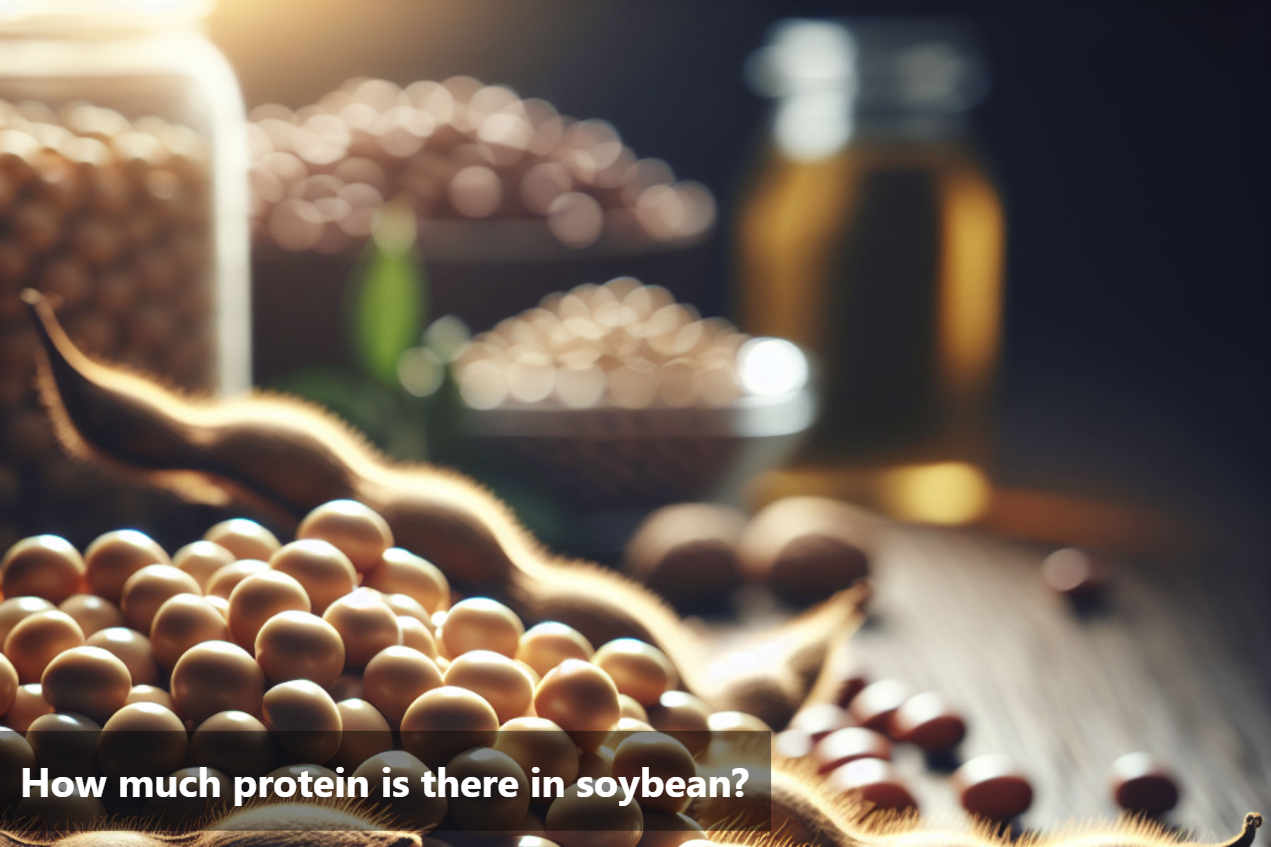
How much protein is there in soybean?
Soybeans are known for their rich protein content, making them a valuable component of a balanced diet. This plant-based protein source offers a wide range of essential nutrients necessary for overall health and well-being. In recent years, soybean protein has gained popularity as a versatile and nutritious option for individuals looking to enhance their dietary protein intake.
One of the key benefits of soybean protein is its complete amino acid profile, which is comparable to animal proteins. This means that soybean protein provides all the essential amino acids required by the body, making it an excellent alternative for individuals following vegetarian or vegan diets.
Including soybean protein in your diet can also support muscle growth and repair, making it a valuable option for athletes and fitness enthusiasts. Incorporating soybean protein into meals can help maintain satiety levels and aid in weight management.

Nutritional Profile of Soybean
The nutrition facts for 3.5 ounces (100 grams) of boiled soybeans are:
Calories |
172 |
Water |
63% |
Protein |
18.2 grams |
Carbs |
8.4 grams |
Sugar |
3 grams |
Fiber |
6 grams |
Fat |
9 grams |
Benefits of Including Soybean Protein in Your Diet
When it comes to maintaining a healthy lifestyle, incorporating soybean protein into your diet can offer a plethora of benefits.
One significant advantage of soybean protein is its positive impact on muscle growth. With its high-quality protein content, soybean aids in muscle repair and development, essential for individuals looking to enhance their fitness levels.
Moreover, soybean protein plays a vital role in weight management. Due to its ability to promote feelings of fullness and reduce appetite, consuming soybean protein can assist in controlling caloric intake, thereby supporting weight loss or maintenance efforts. This makes it a valuable component for individuals striving to achieve their weight goals in a sustainable manner.
Additionally, the consumption of soybean protein has been linked to improved heart health. Studies suggest that soybean protein can help lower bad cholesterol levels and reduce the risk of heart disease. By incorporating soybean protein into your diet, you can potentially enhance your cardiovascular health and overall well-being.
Incorporating soybean protein into your meals not only diversifies your nutrient intake but also offers a range of health benefits, from supporting muscle growth to aiding in weight management and promoting heart health. Embracing soybean protein as part of a balanced diet can be a rewarding choice for your overall health and wellness.
Soybean Salad:
Cook Soybeans: Boil or steam soybeans until tender.
Prepare Salad: Mix cooked soybeans with chopped vegetables like tomatoes, cucumbers, and bell peppers.
Season: Add salt, pepper, olive oil, and lemon juice for flavor.
Garnish: Sprinkle with chopped herbs like parsley or cilantro.
Serve: Enjoy as a nutritious and protein-rich salad.
Roasted Soybeans:
Preheat Oven: Preheat the oven to 350°F (175°C).
Season Soybeans: Toss soybeans with olive oil, salt, and any desired spices (such as garlic powder, paprika, or cumin).
Roast: Spread seasoned soybeans in a single layer on a baking sheet.
Bake: Roast in the preheated oven for 20-25 minutes, stirring occasionally, until golden and crispy.
Cool: Allow roasted soybeans to cool before serving.
Enjoy: Enjoy as a crunchy and protein-packed snack.
Soybean Stir-Fry:
Prep Ingredients: Chop vegetables like broccoli, carrots, and bell peppers.
Sauté Vegetables: Heat oil in a pan and sauté vegetables until tender.
Add Soybeans: Add cooked soybeans to the pan with the vegetables.
Season: Season with soy sauce, garlic, ginger, and any desired spices.
Stir-Fry: Cook until everything is heated through and well combined.
Serve: Serve over rice or noodles for a delicious and satisfying meal.
Soybean Soup:
Prepare Ingredients: Rinse and drain dried soybeans.
Cook Soybeans: In a pot, combine soybeans with water or vegetable broth. Bring to a boil, then simmer until soybeans are tender (about 1-2 hours).
Blend: Using a blender or immersion blender, puree the cooked soybeans until smooth.
Season: Add salt, pepper, and your favorite herbs or spices for flavor.
Serve: Ladle the soybean soup into bowls and garnish with fresh herbs or a drizzle of olive oil. Enjoy as a hearty and nutritious soup.
Soybean Dip:
Blend Ingredients: In a food processor, combine cooked soybeans (canned or boiled), garlic, lemon juice, tahini (optional), and olive oil. Blend until smooth.
Season: Add salt, pepper, and any desired herbs or spices (such as cumin, paprika, or parsley) to the soybean mixture.
Adjust Consistency: If the dip is too thick, add a splash of water or olive oil to reach your desired consistency.
Serve: Transfer the soybean dip to a bowl and garnish with a drizzle of olive oil and a sprinkle of paprika or chopped herbs. Serve with pita bread, crackers, or fresh vegetable sticks for dipping.

Soybean Nutritional Breakdown
Soybean protein emerges as a nutritional powerhouse, offering a plethora of benefits that make it a valuable addition to any balanced diet. Soybean stands out for its impressive protein content, showcasing a diverse array of essential amino acids crucial for muscle repair and growth.
By incorporating soybean protein into your daily meals, you can fortify your diet with a plant-based protein source that rivals traditional animal-based options. The inclusion of soybean protein in your diet can elevate your overall well-being and contribute to a healthier lifestyle. As you embark on your journey towards better nutrition, consider harnessing the power of soybean protein to optimize your dietary habits and reap the numerous advantages it offers.
This Blog post is an initiative by Lo! Foods, to provide accurate and Nutritionist / Doctor approved information related to Health. Lo! Foods is India's leading brand for Everyday Functional Foods. Foods designed for specific Health conditions or Needs. Lo! Foods also runs India's largest range of Low Carb Healthy Cloud Kitchens, under the brand names of Lo!, ProteinChef, ATH (All Things Healthy) and DiabeSmart.













Leave a comment
Your email address will not be published.